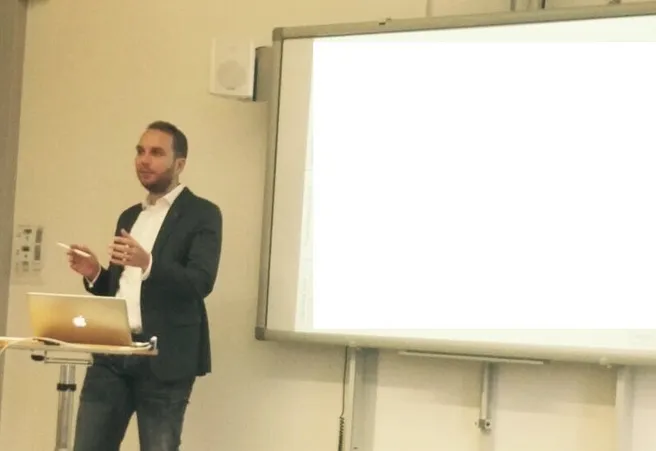Hans van Dijk ist Assistant Professor am Department for Organization Studies der Tilburg Universität in den Niederlanden. In seiner Forschung konzentriert er sich auf Teamprozesse und -ergebnisse. Dabei soll entschlüssselt werden, wie Unterschiede zwischen Gruppenmitgliedern die Dynamik und Performance der Gruppe prägen. Außerdem werden (Fehl-)funktionen bei Statushierarchien, sowie die Rolle von Stereotypen in Arbeitsgruppen untersucht.
Prof. van Dijk publizierte seine Arbeiten in hochrangigen Peer-Review Journals wie beispielsweise Academy of Management Annals, Organizational Behavior and Human Decision Processes, Journal of Occupational and Organzational Psychology, European Journal of Work & Organizational Psychology, und dem Journal of Business Ethics.
Am Mittwoch, 18. Januar 2017 stellt Prof. van Dijk seine Forschung im Rahmen des Research Seminars der TUM School of Management vor. Der Vortrag findet von 13:30 - 14:30 Uhr in Raum 2566 statt und ist für alle Interessierte offen.
Hier finden Sie die genauen Informationen zum Vortrag von Prof. van Dijk:
The Workplace as a Conduit for Cumulative Social Inequality
Work plays a crucial role in rising social inequalities, which refers to unequal opportunities, rewards, and health for different social groups — such as class, ethnicity, gender (Acker, 2006; Cobb, 2016). Dynamics involved in these social inequalities are likely to be cumulative (cf. Magee & Galinsky, 2008; van Dijk, Meyer, van Engen, & Loyd, in press), resulting in increased social inequalities in older ages. However, to date, no research has systematically assessed whether and how social inequalities accumulate through work (Neckerman & Torche, 2007), although this is necessary for understanding dynamics of social inequality and how workplaces can reduce instead of increase social inequalities. To that end, we identify mechanisms that operate at four different levels in organizations: the individual level, the peer/colleague level, the social/network level, and the structural/organizational level. We theorize how the mechanisms within and between levels are related to each other, integrate them into a coherent framework, discuss the implications for creating inclusive workplace climates that reduce social inequality, and advance an agenda for research on the cumulative dynamics of social inequality through work.
